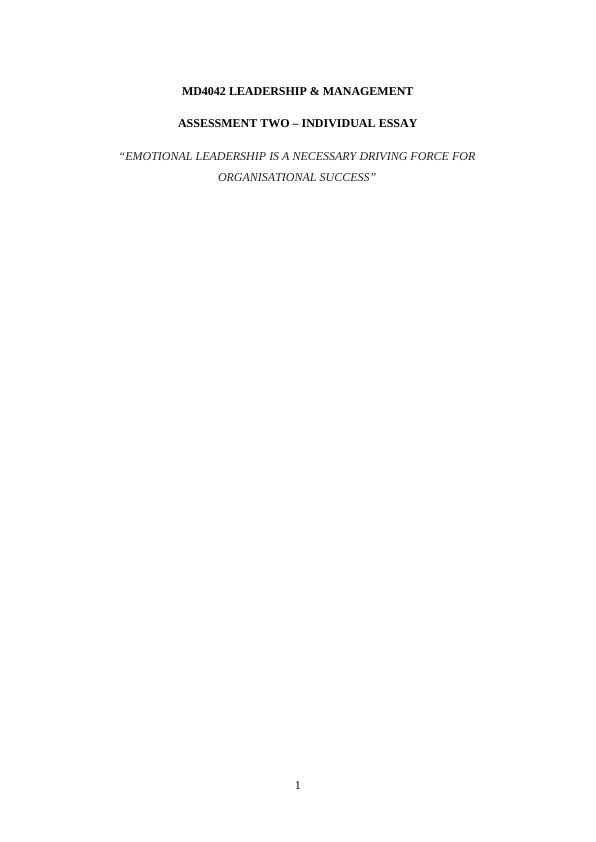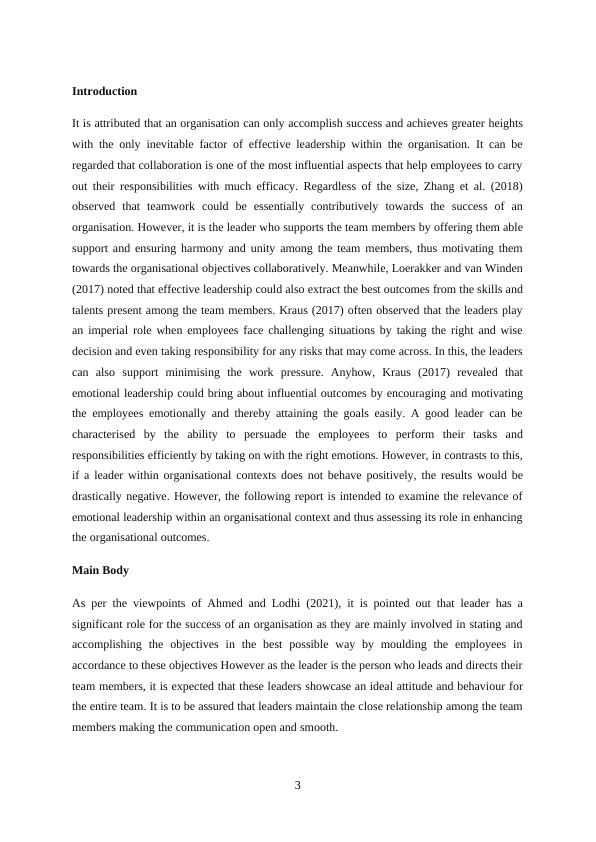Ask a question from expert
Emotional Leadership for Organisational Success: An Assessment
10 Pages3420 Words298 Views
Added on 2021-05-01
About This Document
This essay examines the relevance of emotional leadership within an organisational context and its role in enhancing the organisational outcomes. It discusses the positive and negative aspects of emotional leadership and provides real-world examples of prominent leaders in the market.
Emotional Leadership for Organisational Success: An Assessment
Added on 2021-05-01
BookmarkShareRelated Documents
End of preview
Want to access all the pages? Upload your documents or become a member.
LEADERSHIP AND MANAGEMENT
|6
|1453
|24
Global Leadership Challenges
|10
|2413
|72
Positive Leader Presentation: Assignment
|7
|1851
|356
Leadership Management: Emotional Intelligence, Distributed Leadership, Authenticity, and Leader-Member Exchange Theory
|10
|2772
|360
Importance of Leadership Training and Development for Companies
|13
|4799
|72
Leading Teams in Social Care
|10
|3667
|41


